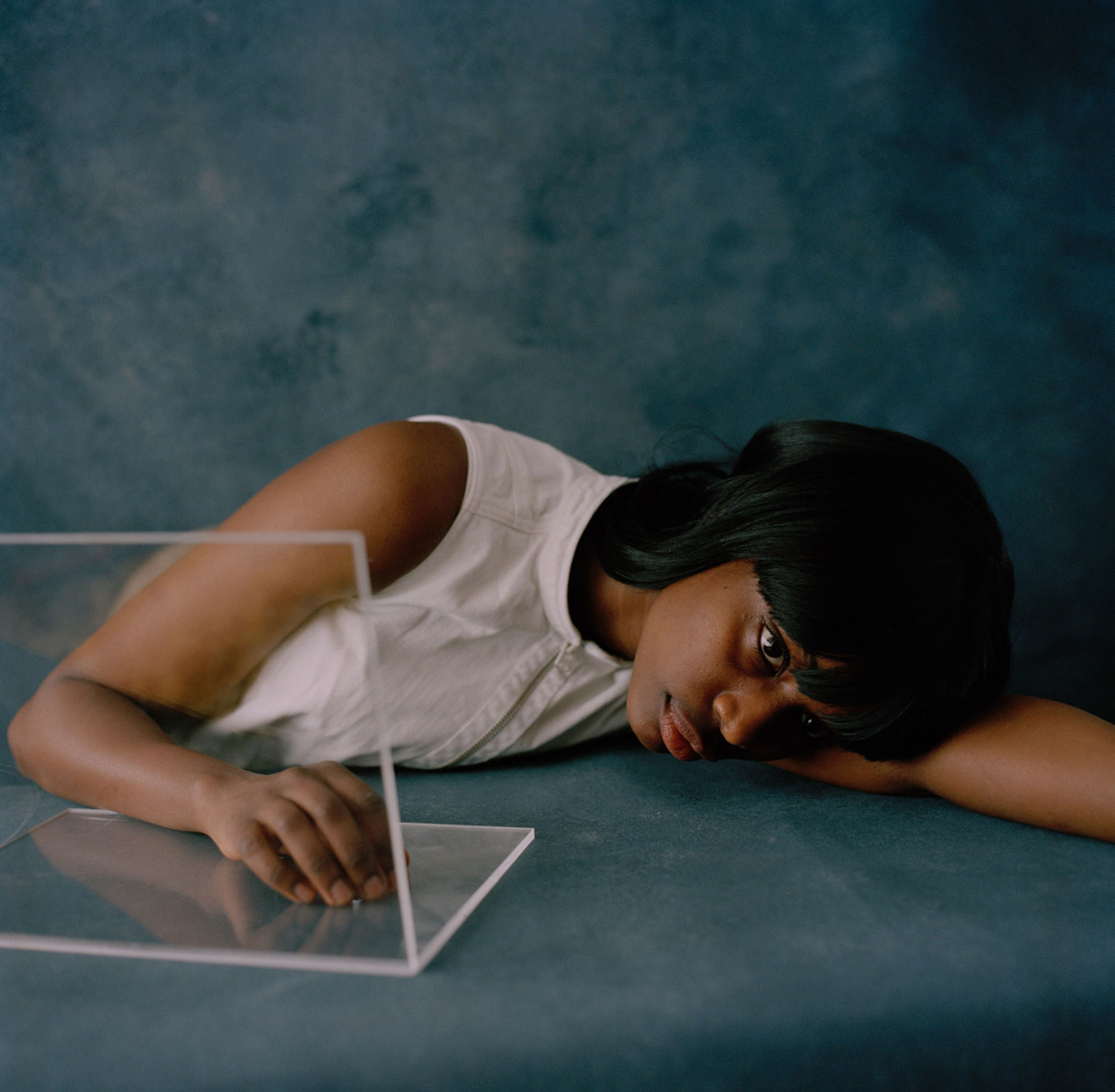
MPB Meets: Portrait Photographer Nicole Benewaah
Published March 14, 2025 by MPB
Nicole Benewaah is a portrait photographer based in Germany. Nicole Benewaah's work, which explores the representation of Black people in Western culture, has been exhibited by the British Journal of Photography and won awards from the Rudolf Augstein Foundation. In this interview with MPB, Nicole Benewaah discusses her portraiture, camera gear and experiences.
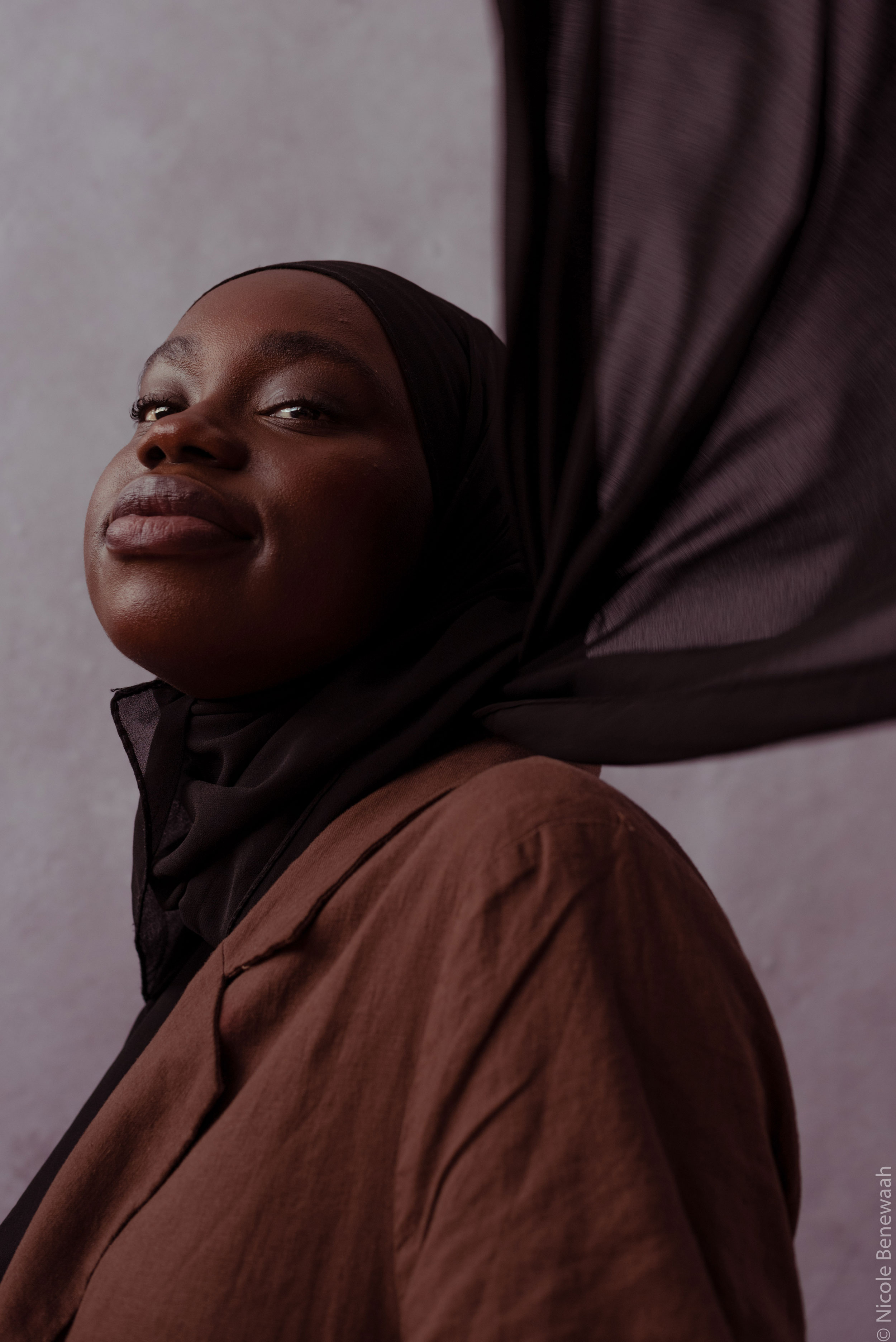
Fatima | ‘Living in Color’, 2022 | Supported by Stiftung Kunstfonds | Nikon D750 | 50mm f/1.8 | f/4.5 | 1/250 | ISO 400
MPB: What inspired you to become a photographer?
NB: I noticed that there were visual gaps in my own family history and a one-sided representation of Black people. I wanted to capture and record my perspective and the perspectives around me in a visible way. I also noticed how special it was for me to see images from my childhood that I hadn't known about. This experience inspired me and gave me the opportunity to express my creative ideas and make a positive contribution to society with the background.
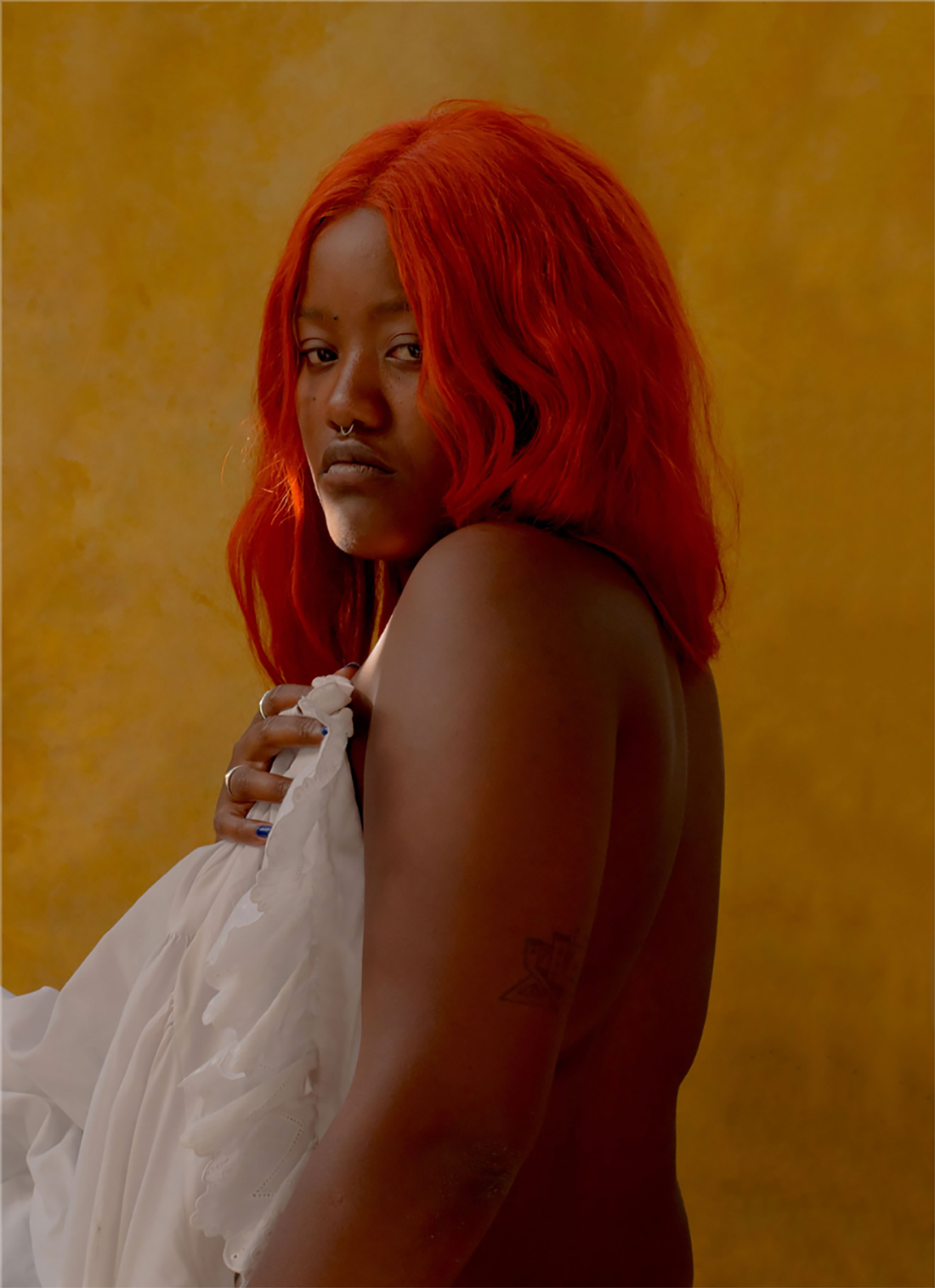
Feli | ‘Living in Color’, 2022 | Supported by Stiftung Kunstfonds | Nikon D750 | 50mm f/1.8 | f/11 | 1/200 | ISO 400
MPB: What equipment do you use for your photography?
NB: I use a Nikon D750 and the 50mm f/1.8, a Nikon Z6 and the 24-70mm f/4 S, and a Hasselblad 500CM and the Carl Zeiss 80mm.
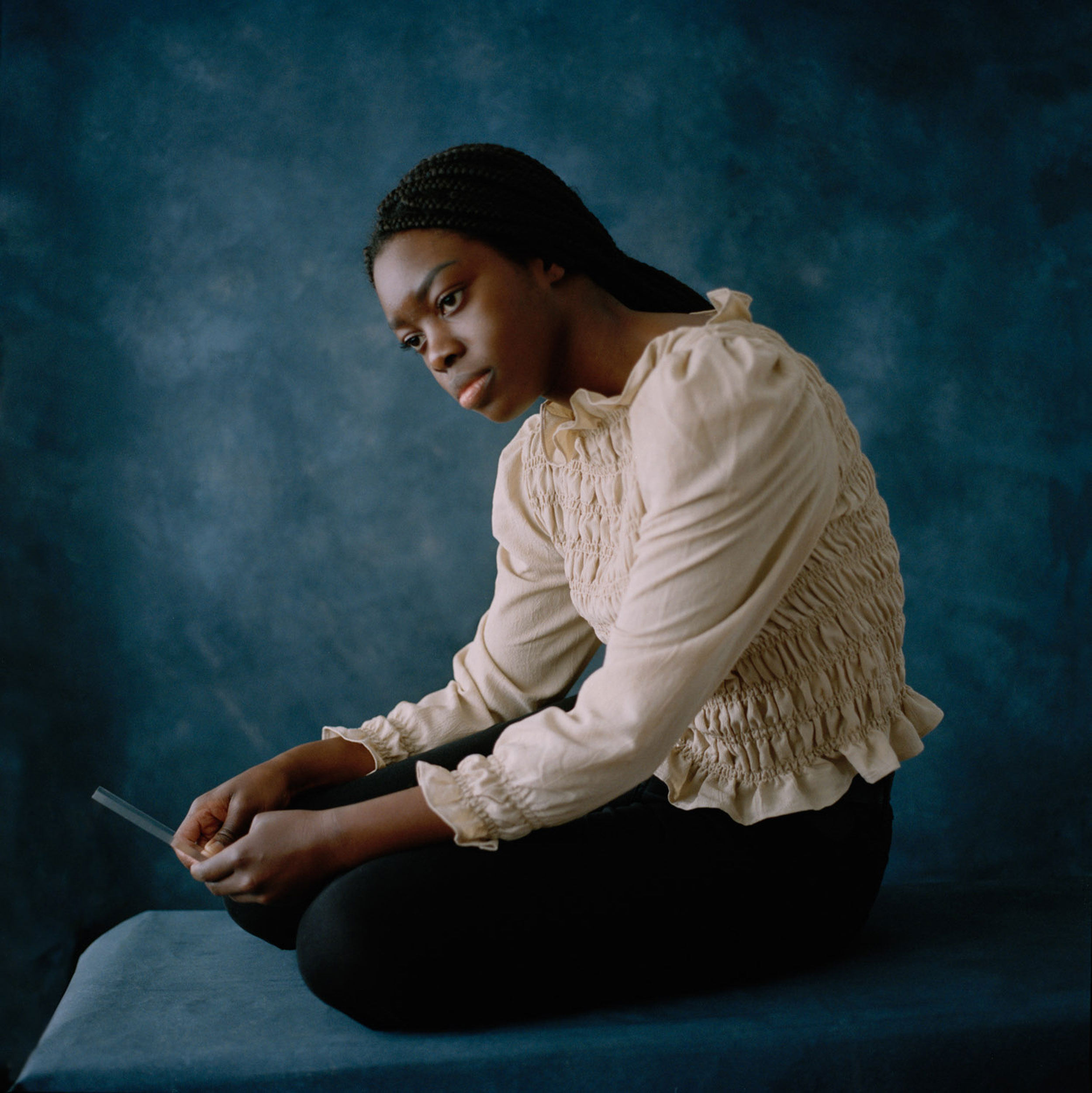
Samira | ‘Feeling - No Pain’, 2020 |
MPB: How do you see the representation of Black women photographers in the industry at the moment?
NB: Unfortunately, Black female photographers are still underrepresented in the industry. The visibility is not balanced at all in the German market. It's nice to see that there are more and more Black models in front of the camera, but it's just as important to have Black photographers behind the camera to have other perspectives. Especially in Germany, there is still a lot of catching up to do.
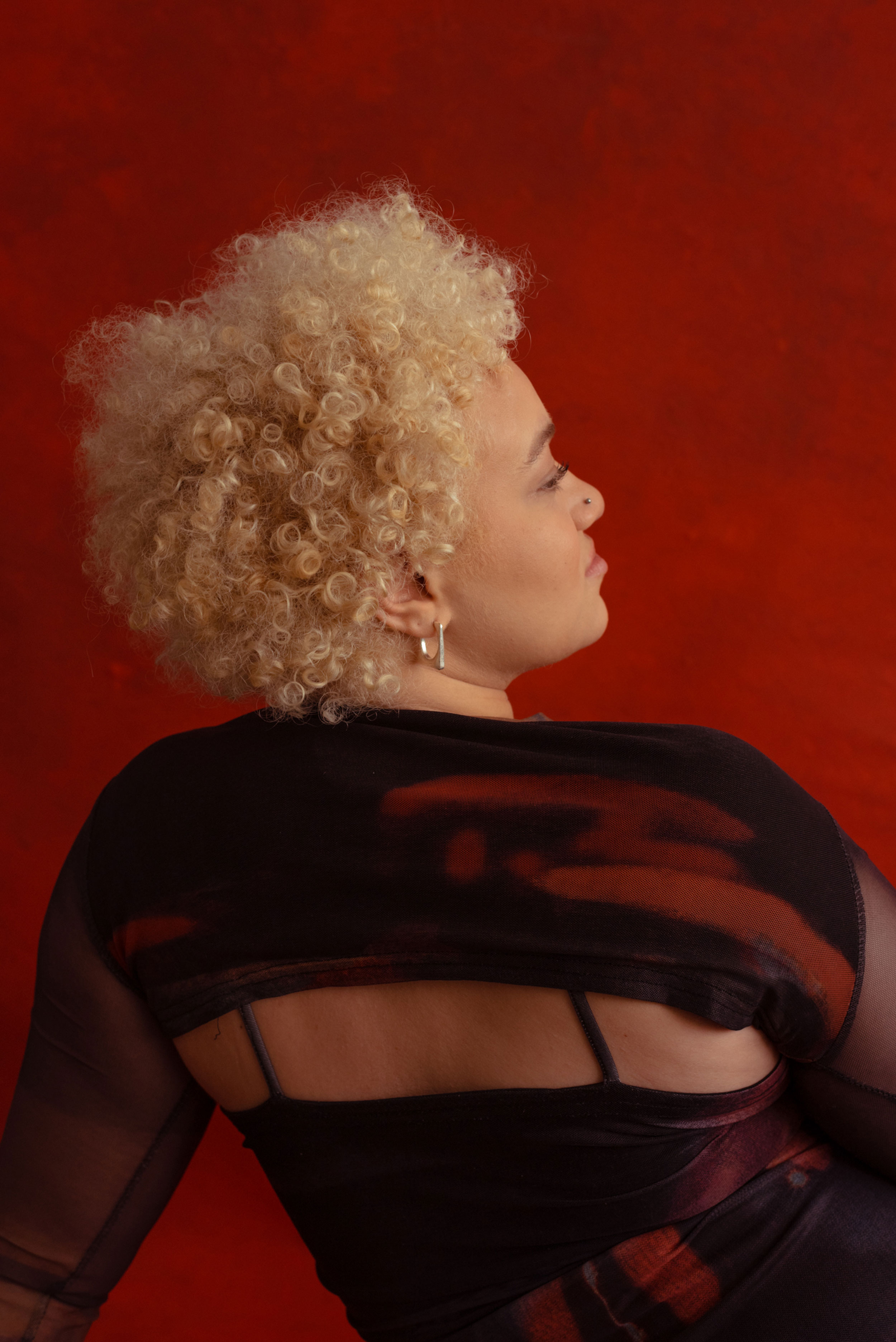
Ricarda | ‘Living in Color’, 2022 | Supported by Stiftung Kunstfonds | Nikon D750 | 50mm f/1.8 | f/5 | 1/200 | ISO 400
MPB: Can you tell us about one of your favorite projects?
NB: There are a few projects that I am very proud of. The series Feeling – No Pain, which I shot in 2020, was very special to me. In the work, I visualize the underrepresentation of Black women in technological discourses as well as in the creation of datasets for AI processes. When I desperately needed a replacement passport in 2019 and the photo booth took too dark a picture of me, I had to quickly find an alternative with a photographer. This event, and the workshop with Mutale Nkonde, made me realize that technology is not neutral and that it can have real impact for marginalized people.
The transparent props, such as laptops and mobile phones, that were used serve as an illustration of the inaccessibility in some areas of technology. To further emphasize this point, I made a conscious decision to shoot on 120mm film to create a historical line. The Shirley Card, introduced by Kodak in the 1940s, did not include dark skin tones until the 1990s. It serves as a reminder of how long it can take for marginalized people to be represented in technology and how much further we have to go.
While we have moved on since then, it is still concerning as these systems are used in more and more applications, from criminal justice to healthcare and from finance to education. In all these areas, there is a risk of reinforcing existing inequalities.

Monica | ‘Feeling - No Pain’, 2020 |
MPB: Can you tell us about a situation where you had to assert yourself as a Black woman in a white or male-dominated environment?
NB: So far I haven't experienced any significant situations because I try to avoid spaces that could be toxic for me. But if I have ever found myself in a conversation with a white male photographer, I have noticed how I am underestimated and it often causes surprise when I tell people that I am not an amateur photographer.
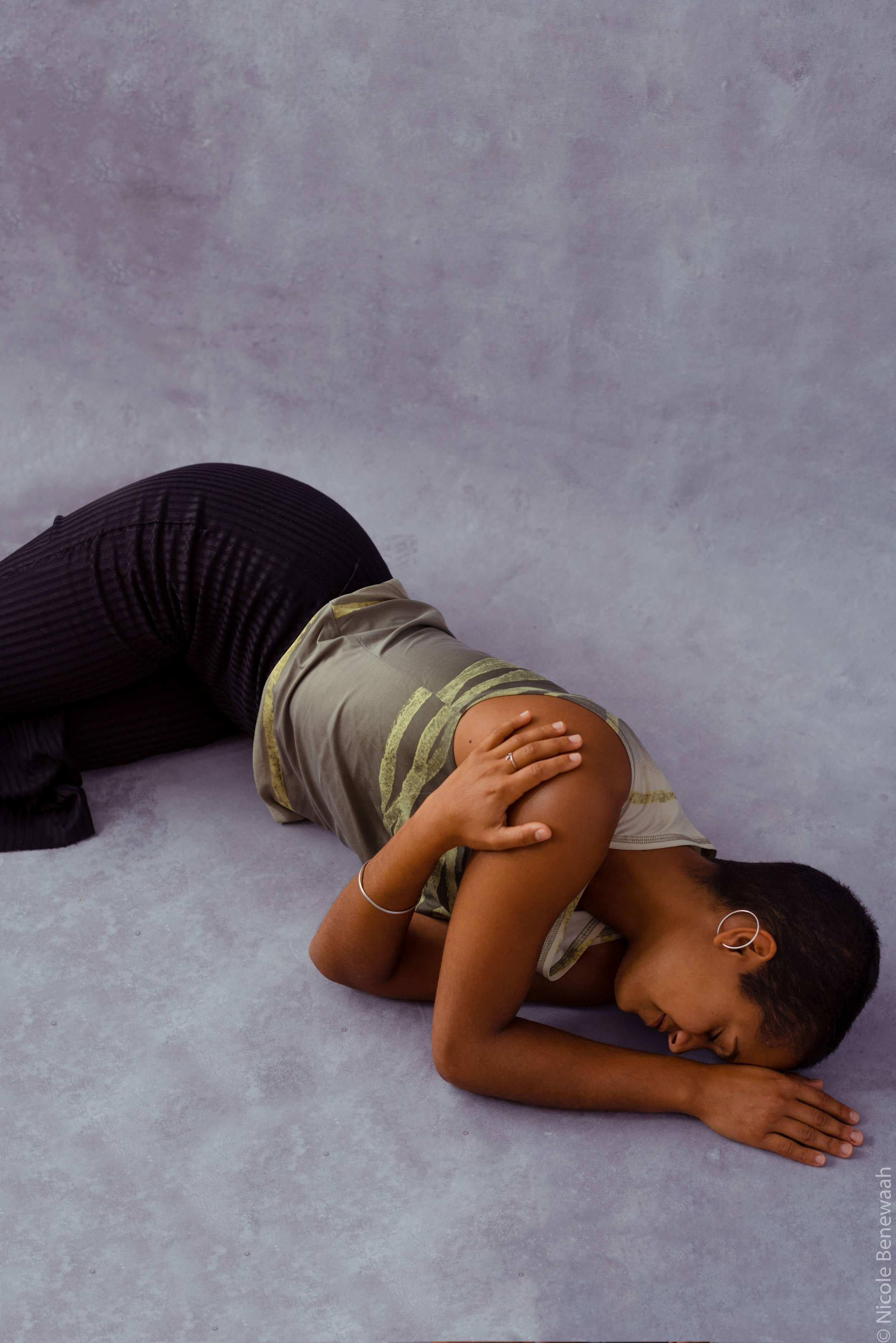
Margaretha | ‘Living in Color’, 2022 | Supported by Stiftung Kunstfonds | Nikon D750 | 50mm f/1.8 | f/3.5 | 1/200 | ISO 400
MPB: How has your identity influenced your experience in the photography industry?
NB: Being a BIPOC in the photography industry has made me realize the importance of diversity and inclusion, especially in the representation of Black subjects and experiences. We are currently at a critical point where black experiences are receiving more attention but are not always fully understood. This presents challenges that can sometimes take the form of micro-aggressions such as thoughtless questions or inappropriate interactions, such as touching hair in a professional setting. Therefore, it is important to know and set your own boundaries when you are in a minority and there is a lack of sensitivity to your own identity in the work climate.
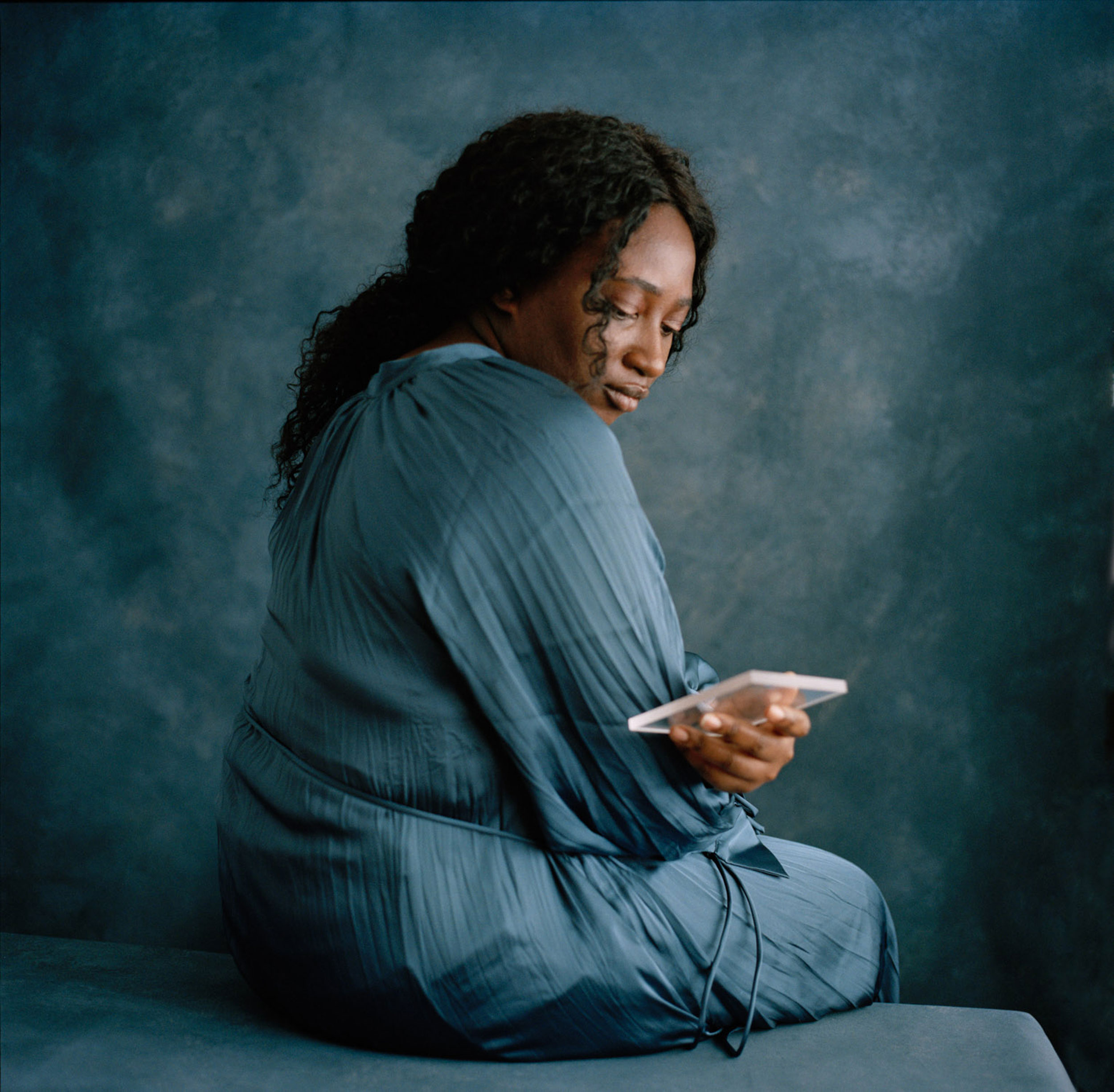
Abby | ‘Feeling - No Pain’, 2020 |
MPB: Can you tell us about a particularly challenging experience you have had as a Black female photographer in Germany?
NB: The biggest challenge I face as a Black female photographer in Germany is the opacity of the industry. Even though this is a problem that exists regardless of one's identity, it hits multiple marginalized people like me harder.
The crux of the matter is how much time, capital and network you have and need to get to the place you want to be. It can be difficult to muster these necessary resources without doubting yourself through everyday unpleasant situations. In addition, the socio-economic situation plays a big role and influences the challenging start in the photography industry.
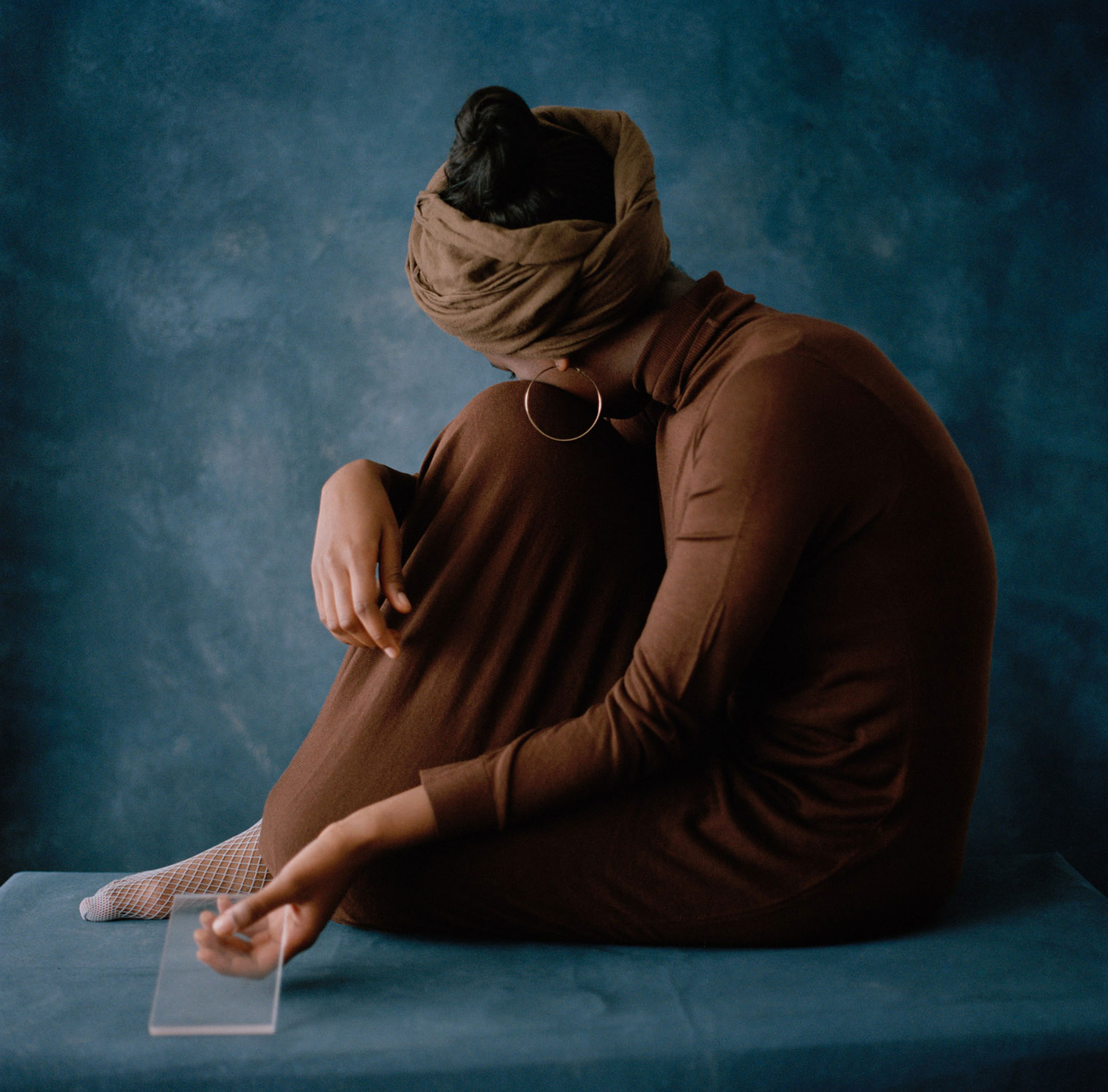
Cindy | ‘Feeling - No Pain’, 2020 |
MPB: How do you approach photography? What does your creative process usually look like?
NB: I'm an organised slob: when I do personal projects, I read a lot about the subject, let it sink in and then make my mood boards. When I can visualize the image, I first start writing to people and models I can well imagine for it. On the day of the shoot, I always try to approach it in a very grounding way and be sensitive to the needs of the person facing me. I find the image editing and selection the most challenging. If I have time for it, I take it, but when it comes down to it, I can make a decision quickly, that's something I learned especially in my student days. When it comes to commissions, I approach it more systematically and try to understand what is wanted by asking a lot of questions, so that I can follow the creative process more stringently.
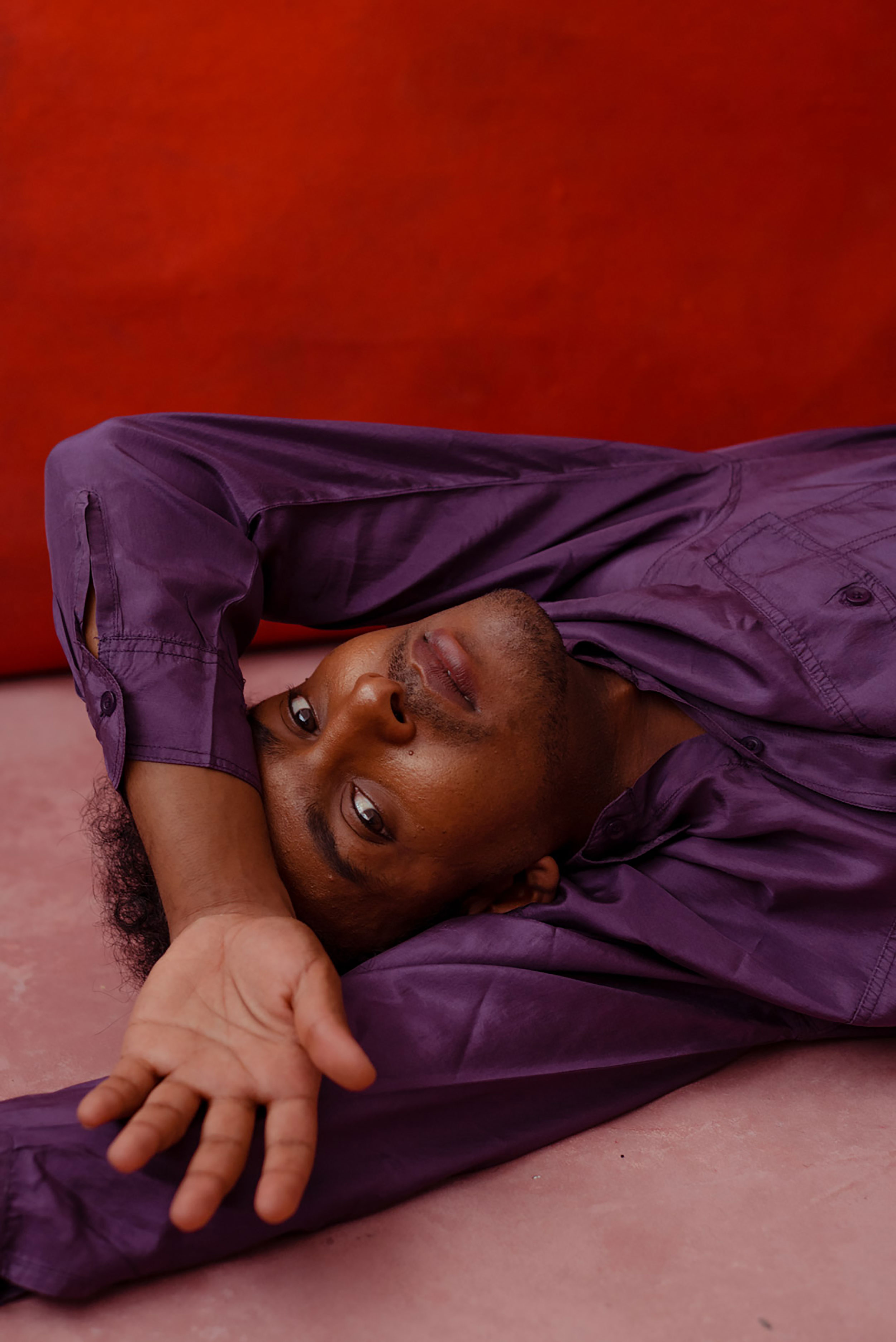
Sheeko | ‘Living in Color’, 2022 | Supported by Stiftung Kunstfonds | Nikon D750 | 50mm f/1.8 | f/3.2 | 1/200 | ISO 400
Intersectionality plays a very important role in my experience because my identities as a woman, a Black person and my class are interconnected and affect me in different ways. This reality partly determines how I am perceived in the photography industry and the barriers I face.
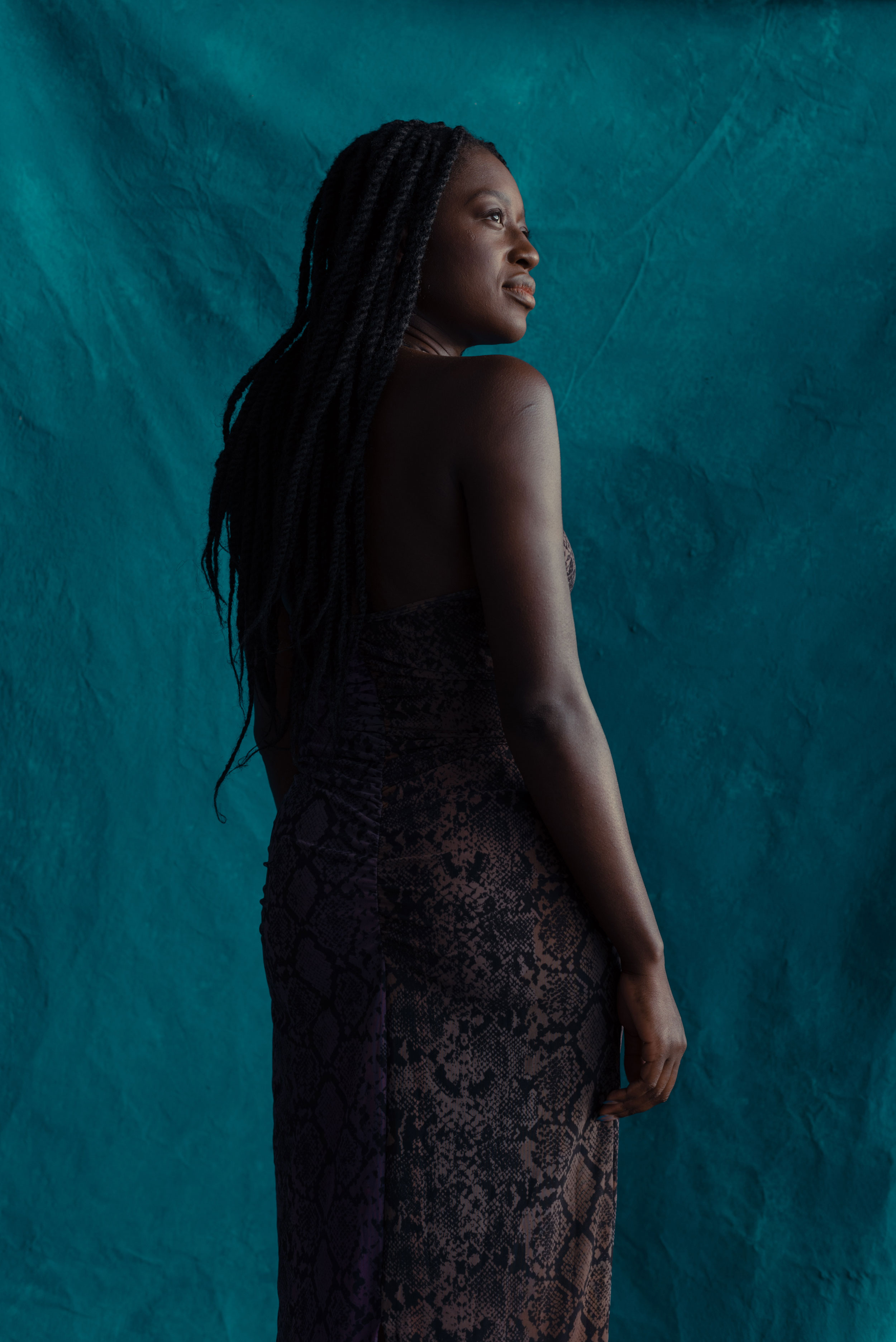
Mariza | ‘Living in Color’, 2022 | Supported by Stiftung Kunstfonds | Nikon D750 | 50mm f/1.8 | f/3.5 | 1/250 | ISO 400
Read more interviews on the MPB Content Hub .
You can sell or trade your camera gear to MPB. Get a free instant quote, get free insured shipping to MPB and get paid within days.